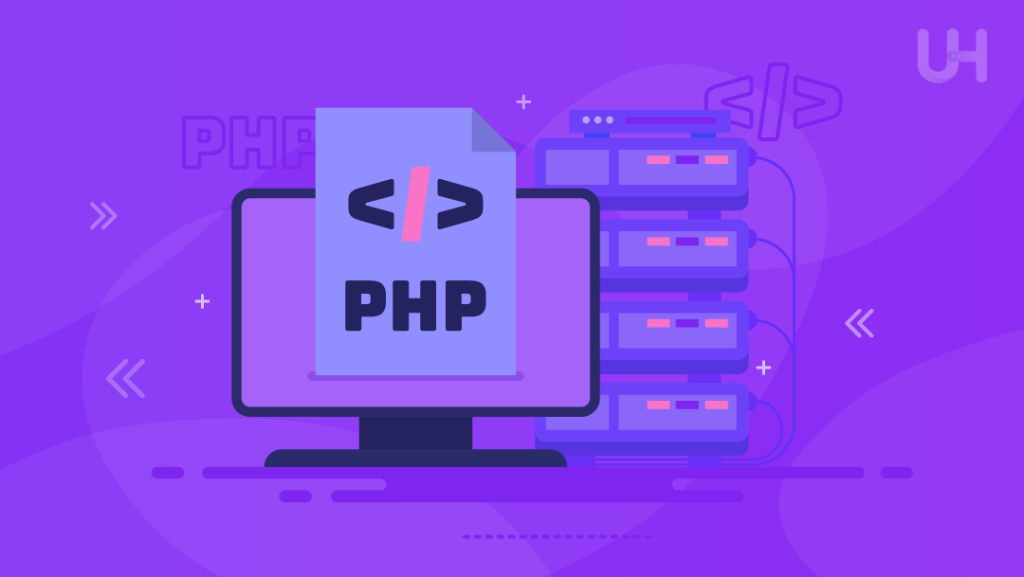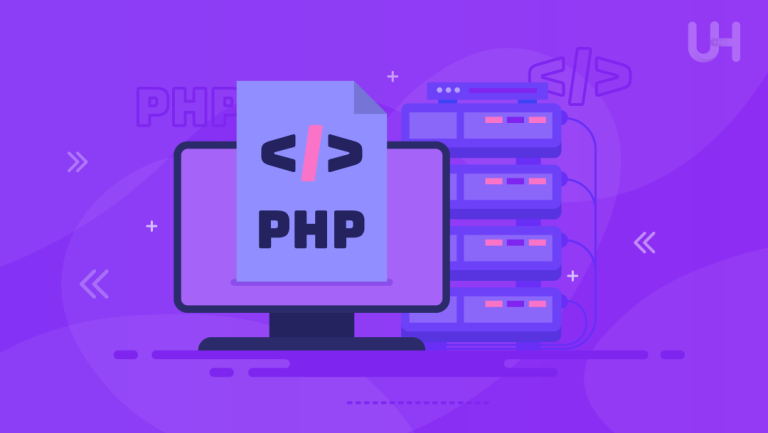Web development requires more than just coding prowess; it demands strategic decisions, especially when it comes to selecting the right hosting provider for your PHP Projеcts. The intricacies of this decision reach far beyond mere technicalities — they extend to the very core of your project’s success, influencing performance, security, and user satisfaction.
Whether you’re a seasoned developer seeking to enhance your current PHP projects or a newcomer navigating the hosting options for the first time, this guide promises to be your trusted companion.
Understanding PHP Hosting Requirements

PHP, a server-side scripting language, is the backbone of many web applications. To ensure seamless development, it’s crucial to understand the specific hosting requirements, including PHP version compatibility, database support (e.g., MySQL), and server configurations (e.g., Apache, Nginx).
PHP Version Compatibility
Different PHP projects may require specific PHP versions to leverage the latest features and security updates. The hosting provider should offer a range of PHP versions and the flexibility to switch between them, ensuring compatibility with your project’s requirements.
Database Support (e.g., MySQL)
For PHP applications reliant on databases, such as MySQL, compatibility is paramount. Verify that the hosting provider supports the required database systems and offers optimal performance for database-driven PHP projects.
Server Configurations (e.g., Apache, Nginx)
The server environment significantly influences PHP project performance. Evaluate the hosting provider’s support for popular web servers like Apache or Nginx. Consider server configurations that align with your project’s needs, optimizing its efficiency and responsiveness.
Types of Hosting Services
While cost-effective, shared hosting shines in its simplicity and ease of use. It’s an ideal starting point for smaller PHP projects with moderate traffic, offering a budget-friendly entry into the web hosting landscape.
However, shared server hosting may exhibit limitations in terms of performance and customization. Resource sharing could lead to slower loading times, and the constrained environment might not meet the demands of larger or more complex PHP applications.
In shared hosting, resources such as CPU, memory, and bandwidth are shared among multiple users. Understand the hosting provider’s policies on resource allocation and ensure that the activities of neighboring users do not adversely impact your PHP project’s performance.
Due to shared resources, security becomes a crucial consideration. Evaluate the hosting provider’s security measures to mitigate risks associated with potential vulnerabilities in shared hosting environments.
Virtual Private Server or VPS Hosting
VPS hosting strikes a balance between cost and performance, providing dedicated resources within a virtualized environment. This option offers more control and flexibility compared to shared hosting, making it suitable for mid-sized PHP projects.
For PHP projects that require additional control over server configurations and performance optimization, unlimited bandwidth VPS hosting emerges as a pragmatic choice. It accommodates scalability needs and ensures a higher degree of customization.
VPS hosting allows for scalable resource allocation, enabling PHP projects to adapt to changing requirements. Understand the scalability options provided by the hosting provider, ensuring that your project can seamlessly grow without encountering resource constraints.
Dedicated Hosting
Dedicated hosting allocates exclusive server resources to a single user or project. This results in unparalleled performance, making it an optimal choice for resource-intensive PHP projects with high traffic demands.
Consider dedicated hosting when your PHP project necessitates maximum performance, security, and resource availability. This is particularly crucial for large-scale applications or mission-critical projects.
A dedicated server offers the highest level of customization. Tailor server configurations to meet the specific requirements of your PHP project, optimizing performance and ensuring compatibility with unique software or frameworks.
Cloud Hosting
Cloud hosting provides scalability and flexibility, allowing PHP projects to adapt to variable traffic patterns. The pay-as-you-go model ensures cost-effectiveness, making it an attractive option for projects with unpredictable resource needs.
Optimizing PHP projects for cloud hosting involves implementing best practices, including load balancing, auto-scaling, and leveraging platform-specific services. This enhances the project’s resilience and performance in a dynamic cloud environment.
PHP Cloud hosting provides various storage and backup solutions. Understand the storage options available, including object storage, file storage, and database services. Implement robust backup strategies to safeguard your PHP project’s data.
Ready to Elevate Your PHP Projects?
Start your hosting journey tailored for unparalleled success. Dive deep into the intricate world of PHP hosting with Ultahost, where cutting-edge technology meets reliability. Experience hosting solutions designed to optimize performance, fortify security, and effortlessly scale with your evolving project needs.
Performance and Speed
Website loading speed is paramount for user experience and search engine rankings. The choice of hosting significantly influences this aspect, making it essential to prioritize providers with a track record of delivering swift and reliable performance for PHP projects.
Evaluate the hosting provider’s hardware infrastructure, including the type of storage (SSD or HDD) and the quality of server components. High-performance hardware contributes to faster data retrieval and overall website speed.
For PHP projects expecting high traffic, explore load-balancing options provided by the hosting provider. Load balancing distributes incoming traffic across multiple servers, preventing server overload and ensuring consistent performance.
Server location and its influence on performance
The geographic location of the hosting server directly impacts latency and load times. Opt for a hosting provider with server locations strategically distributed to cater to your target audience, ensuring a seamless experience for users across the globe.
Integrate a Content Delivery Network (CDN) to further optimize the delivery of static assets, such as images, stylesheets, and scripts. CDNs have servers distributed globally, reducing latency and accelerating content delivery for PHP projects.
Understand the correlation between server location and latency. A hosting provider with servers strategically positioned closer to your target audience minimizes latency, contributing to a faster and more responsive user experience.
Content Delivery Networks (CDN)
Select a hosting provider that seamlessly integrates with popular CDNs or provides its own CDN services. Configure CDN settings to optimize the caching and delivery of PHP project assets, ensuring efficient content distribution across global server nodes.
While CDNs enhance performance, be mindful of associated costs. Understand the pricing models of CDN services, considering factors such as data transfer rates, request fees, and any additional costs based on usage patterns.
Security Measures
Security is a non-negotiable aspect of PHP projects. With the constant threat of cyberattacks, selecting a hosting provider with robust security measures is paramount to safeguard sensitive data and ensure the integrity of the application.
Familiarize yourself with common security threats to PHP applications, including SQL injection, cross-site scripting (XSS), and unauthorized access. Choose a hosting provider with proactive security measures designed to mitigate these risks.
Opt for hosting providers that conduct regular security audits and monitoring. Automated systems and human oversight help identify and address potential vulnerabilities promptly, minimizing the risk of security breaches for PHP projects.
Enhance the security of your hosting account by enabling Two-Factor Authentication (2FA). Evaluate the hosting provider’s access controls, allowing you to define user roles and permissions for enhanced security management.
Assess the hosting provider’s Distributed Denial of Service (DDoS) mitigation strategies. Robust DDoS protection ensures that PHP projects remain accessible even during potential attack scenarios, safeguarding against service disruption.
Choose a hosting provider with malware detection and removal tools. Automated scans and real-time monitoring mitigate the risk of malware infections, preserving the integrity of PHP project files and data.
SSL certificates encrypt data exchanged between the server and users, enhancing the overall security of PHP projects. Ensure your hosting provider supports the implementation of SSL certificates and facilitates the seamless integration of HTTPS for secure data transfer.
Moreover, ensuring your PHP projects are free from malicious software is critical. Choose a hosting provider that includes a comprehensive malware and virus removal tool, which can be pivotal in protecting your projects against various security threats.
Customer Support and Reliability
Reliable customer support is crucial for addressing issues promptly and ensuring the smooth operation of PHP projects. Assess the responsiveness, expertise, and availability of customer support channels, such as live chat, ticket systems, and phone support.
Ensure the hosting provider’s support team possesses the technical expertise to assist with PHP-specific issues. A knowledgeable support team can provide valuable guidance on troubleshooting, optimization, and best practices for PHP projects.
Consider hosting providers that offer 24/7 customer support. PHP projects may encounter issues at any time, and having round-the-clock support ensures timely assistance, particularly in critical situations or during global project collaborations.
High uptime guarantees signify the hosting provider’s commitment to keeping your PHP projects accessible and operational. Look for providers with a proven track record of reliability, minimizing downtime, and ensuring a consistent user experience.
Review the Service Level Agreement (SLA) of hosting providers, specifically focusing on uptime guarantees. A robust SLA outlines the provider’s commitment to maintaining a specified level of service availability for PHP projects.
Explore the hosting provider’s monitoring practices and redundancy measures. Proactive monitoring detects potential issues before they impact PHP projects, while redundancy ensures failover mechanisms are in place to mitigate the impact of hardware or network failures.
Scalability for Futurе Growth
Anticipate the growth trajectory of your PHP project. Consider factors such as increasing traffic, expanding functionality, and potential resource demands. Choosing a hosting provider that aligns with your project’s scalability needs ensures a seamless transition as your project evolves.
Analyze historical and expected traffic patterns for your PHP project. Factor in seasonal variations, marketing campaigns, and other events that may influence traffic levels. A hosting provider that accommodates variable traffic ensures consistent performance during peak periods.
Budget Considerations
While cost is a significant consideration, a comprehensive cost comparison should extend beyond the base hosting fees. Consider the scalability costs, security features, and potential overage charges associated with each hosting type. A holistic view of the costs ensures that your chosen hosting provider aligns with your budgetary constraints without compromising essential features.
Scrutinize hosting plans for hidden fees that might impact your budget. These can include charges for exceeding resource limits, data transfer fees, or fees associated with specific features. A transparent pricing structure ensures you make an informed decision aligned with your budgetary constraints.
Conclusion
The crux of a successful PHP project lies in aligning the hosting provider with its unique and evolving requirements. Recap the multifaceted considerations discussed throughout this guide, emphasizing the importance of making an informed decision based on the distinctive needs of PHP development. Encourage readers to embark on a meticulous exploration of each hosting option, ensuring a symbiotic relationship that propels their PHP projects to new heights.
Ready to elevate your PHP projects to new heights? Explore the tailored website hosting solutions at Ultahost and experience a hosting environment where innovation meets dependability. Propel your projects forward, exceed expectations, and revolutionize your web development journey with Ultahost.
FAQ’s
What makes PHP hosting different from other types of hosting?
PHP hosting is specifically optimized for hosting websites and applications developed using PHP, a server-side scripting language. Moreover, it ensures compatibility with PHP versions, provides support for PHP-specific configurations, and often includes features tailored for PHP development.
What security measures should I prioritize for PHP hosting?
Security is paramount for PHP hosting. Look for hosting providers that offer features such as robust firewalls, regular security audits, malware detection tools, and support for SSL certificates to ensure secure data transfer.
Why is server location important for PHP hosting?
The physical location of the hosting server influences the latency and loading times of your PHP projects. Moreover, choosing a server location strategically aligned with your target audience helps deliver a responsive experience to users across the globe.
Why choose Ultahost for PHP hosting?
Ultahost stands out as a hosting provider that combines cutting-edge technology with reliability. Explore hosting solutions designed to optimize performance, fortify security, and effortlessly scale with your evolving PHP projects.












